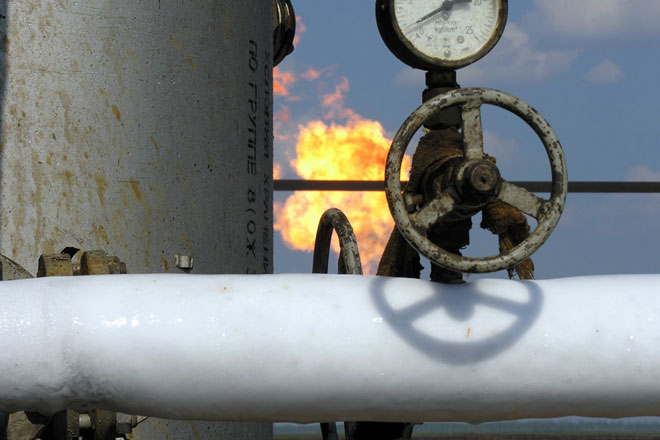Azerbaijan, Baku, March 6 /Trend S.Isayev/
Under normal circumstances, The Iran-Pakistan gas pipeline project is beneficial to both sides, U.S. Northeastern University Professor Kamran Dadkhah told Trend.
Dadkhah was commenting on the advantages and disadvantages on the natural gas pipeline that Iran and Pakistan plan to begin sometime in 2014.
He added, that the pipeline project would be even more beneficial for neighboring countries.
"Iran possesses the second largest gas reserves in the world and Pakistan is in need of sources of energy," Dadkhah said. "The gas exported through the pipeline will have low processing and transportation costs".
Furthermore, he said, Iran, which has been shut out of Caspian Sea gas projects, will be able to export gas.
Iran and Pakistan signed the Gas Sale and Purchase Agreement (GSPA) in June 2009. The Government of Pakistan has already determined that the imported natural gas from Iran would provide the cheapest and most suitable fuel for power generation.
It has been estimated that 750 mmcfd gas would help generate around 4,000MW of electricity, besides providing job opportunities in the backward areas of Balochistan and Sindh. Iran has already laid the 56-inch diameter pipeline for a distance of 900 km from Assaluyeh to Iran Shehr.
The remaining 200 km to bring the pipeline to the Pakistani border are likely to be completed in the next two years. Pakistan, on its part, is planning to complete its segment of the pipeline by the end of 2014.
Currently, Pakistan is facing severe energy crisis, believes that the multi-billion dollar gas pipeline is its best bet to partially resolve the problem.
Dadkhah also mentioned the Southeast region of Iran and adjacent areas of Pakistan, will benefit from the pipeline, if the project is launched.
"These areas are poor and less developed regions. Investment in the pipeline would be a boon to the economy of these provinces," he said. "The problem is that the conditions are not normal. Iran is under international sanctions, therefore, the project can face many obstacles".
Among the mentioned obstacles, Dadkhah names mostly financial ones, and those of technological nature.
"Even if the pipeline is completed, there will remain problems of security and processing payments," Dadkhah said. "Terrorist activities are occurring on both sides of the border between Iran and Pakistan. It would be hard and costly to maintain the safety of the pipeline".
Dadkhah also believes that Pakistan will have its share of problems, paying for Iranian gas.
"It is unclear how Pakistan will pay for the gas," he said. "The economy of Iran and Pakistan are not complementary".
According to Dadkhah, Iran will be forced to accept low quality products from Pakistan in return for the exported gas. He added that what's more important is that Pakistan needs the aid from the United States. He also believes that its likely for Pakistan, along the way, to scrap the project, under the U.S. pressure.
"It is likely that along the way, under pressure or incentives from the US, Pakistan scraps the project. That was indeed what happened in 2009 when India practically pulled out of the project," Dadkhah said.
Despite the Iran-imposed sanctions, and negative statements from the U.S. regarding the pipeline, Pakistan is determined to go further with the project. Recently, it has been reported that Iran agreed to provide $250 million loan for the Iran-Pakistan gas pipeline project.
Minister for Petroleum and Natural Resources Dr Asim Hussain said that Pakistan was asking for a $500 million, however Iran agreed to only half of that sum. Pakistani delegation should be visiting Iran soon, sometime next month, to discuss and finalize the deal about the gas pipeline project.
"The Iranian economy and Iranian people have tremendously suffered from international sanctions. It is time that the leadership put the interest of the country above its own interest," Dadkhah concluded.






